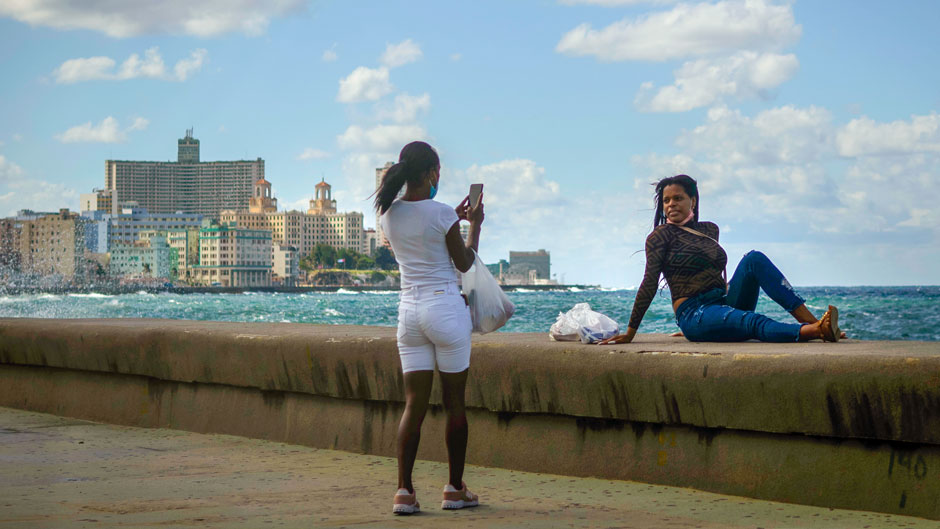Cuba has announced that it will reopen to tourists on Nov. 15, following a dire summer dealing with the COVID-19 pandemic. On the same day, several dissident groups on the island have called for peaceful street demonstrations.
“The timing of the called-for demonstrations is not a coincidence,” said Michael Bustamante, Emilio Bacardí Moreau Chair in Cuban and Cuban American Studies and associate professor at the University of Miami. “At a time when the world’s eyes will be on Cuba because it is reopening its borders to tourism and hoping to turn the corner on the current economic crisis, civil society actors call for a new set of marches to draw attention to their demands for political change.”
It is mostly the Cuban economy that is driving both events. Cuba is undergoing a dire economic crisis. The lack of tourism, because of pandemic restrictions, has aggravated an already tenuous situation. Food shortages, long lines to get whatever food is available, and a lack of medicines has been a constant, according to experts.
The Cuban economy shrank 11 percent in 2020, reported Alejandro Gil, the Cuban minister of economy and planning. Cuba imports more than 50 percent of its fuel, food, and many other staples.
These scarcities coupled with dissent against the repressive government brought hundreds of Cubans to the streets in various cities around the island on July 11 for unprecedented massive demonstrations. Many in the crowds asked for food, medicine, and freedom. The Cuban government answered swiftly and violently, arresting many protesters and pummeling others. Several well-known dissidents are still in jail, news reports stated. Cuban President Miguel Díaz-Canel has accused the United States of orchestrating the protests.
But several Cuban activist groups vow that the Nov. 15 march will take place.
“Cuban authorities have not approved organizers’ petitions to march and have threatened legal and other consequences if they move forward,” said Bustamante. “The scale of the response will, I suspect, depend somewhat on the number of marchers that still decide to demonstrate.”
Cuba’s reopening to tourists comes after a sharp decline in the number of COVID-19 cases on the island.
“They have brought down the numbers quite a bit from the summer, when the Delta variant made Cuba one of the worst places in the region for COVID-19 spread,” said Michael Touchton, associate professor of political science.
The decline in COVID-19 cases came after Cuba launched an aggressive campaign to vaccinate its population with homegrown vaccines, named Soberana 02 and Abdala.
Cuba’s Ministry of Health has reported that more than half a million people have been vaccinated against COVID-19. There are approximately 11 million Cubans on the island. And as of Nov. 4, the country had charted 953,750 COVID-19 cases and approximately 8,250 related deaths.
For those arriving in Cuba after Nov. 15, there will be no testing requirement or quarantine period in hotels if tourists can prove they have been vaccinated against the virus.
Those who are not vaccinated must present a negative result of a PCR test taken no more than 72 hours before arriving in the country, according to the Cuban Health Ministry.
Under U.S. law, its residents are still prohibited from traveling to Cuba. But they can visit the county under 12 permissible categories, which include family visits, journalistic activity, academic research, and humanitarian projects.
Numbers from the Ministry of Tourism show that prior to the pandemic, Cuba received more than 4 million tourists a year, contributing 10.6 percent to the country’s gross domestic product.

